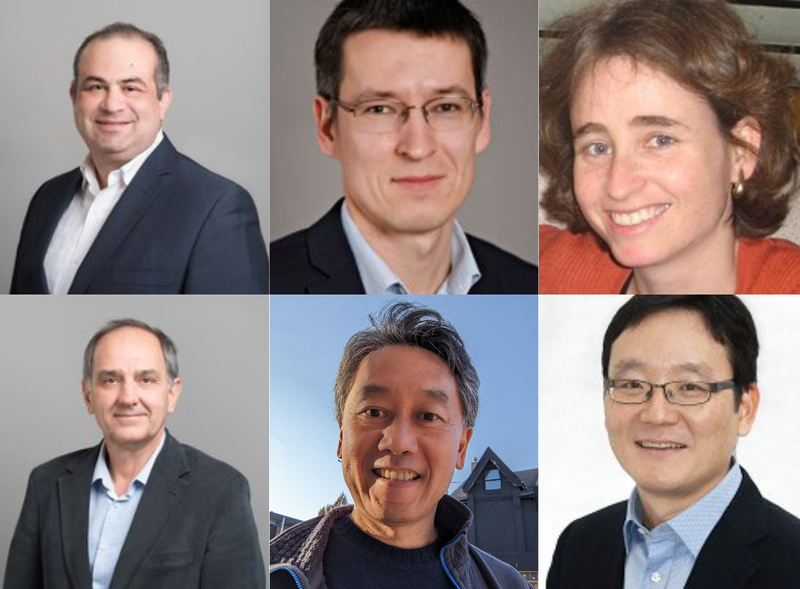
On April 18th 2023, the Minister of Innovation, Science and Industry, the Honourable François-Philippe Champagne, announced 75 new recipients of the NSERC Alliance National Quantum Strategy Award.
The Canadian government awarded these funds to research projects that will "address important challenges in quantum science while supporting the development of quantum technologies in a variety of areas, including quantum algorithms and encryption, quantum communications, quantum computing, quantum materials, and quantum sensing. They will enhance Canada's quantum capabilities through domestic and international research collaborations." The Alliance grant is a part of the government's 2021 commitment to invest in a National Quantum Strategy.
CQIQC is delighted to announce that 6 of CQIQC’s members, Professors Amr Helmy, Artur Izmaylov, Young-June Kim, Dvira Segal, Sorin Voinigescu, and John Wei are recipients of the NSERC Alliance National Quantum Strategy grants. Our researchers received approximately $2.3M in funding to support their research projects.
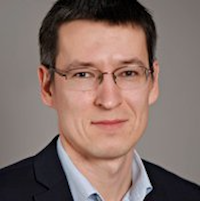
Artur Izmaylov (Department of Physical and Environmental Sciences): Alliance Quantum Grant ($360,000 for 3 years) for Quantum computing electronic structure methods for material development.
Professor Izmaylov's research group received this grant to develop computational algorithms for solving the electronic structure problem of molecules on both quantum and classical computers.
With their results, they expect to create software packages that can perform calculations to facilitate the search for compounds suitable for organic light-emitting diodes (OLEDs). The project is of a collaboration with an industrial partner, OTI Lumionics, who are developing more flexible and energy-efficient organic OLED devices. These devices can significantly advance imaging and light-emitting technologies, such as portable electronic devices, flat-screen TVs, and ultra-thin desk lamps. The search for better materials is at the heart of OTI's efforts. Overall, Professor Izmaylov's quantum algorithms development will assist OTI Lumionics in achieving their mission.
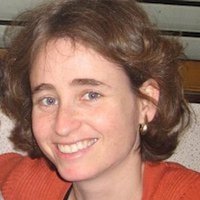
Dvira Segal (Department of Chemistry): Alliance International Quantum grant ($25,000 for 1 year) for Tradeoffs in quantum thermometry: Consistent quantum thermodynamic frameworks.
Professor Segal will work on the theory of quantum thermometry with Professor Ahsan Nazir’s research group at the University of Manchester. The project’s objective is to use quantum resources, such as quantum coherences, to devise nanoscale thermometers that are accurate and sensitive over a broad range of low temperatures.
Quantum probes are small in nature. When interacting with a sample, the probes are modified, thus obstructing temperature estimation. Professor Segal’s team and their collaborator will assess the role of probe-sample interactions in thermometry and how to correct it. They also plan to derive tradeoff relations that expose relationships between the accuracy, sensitivity, cost, duration and feasibility of quantum thermometers. Ultimately, their research will contribute to the development of miniaturized temperature sensors and precise thermal conductance measurements.
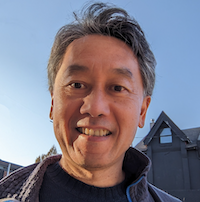
John Wei (Department of Physics): Alliance International Quantum grant ($25,000 for 1 year) for Harnessing the Interplay of Superconductivity and Charge Order in Rare-Earth Doped Cuprates for Josephson Junction Applications.
Professor Wei's project focuses on understanding and controlling the interplay between two quantum materials phenomena: high-temperature superconductivity and charge density wave order. These phenomena coexist in cuprates doped with rare-earth elements and can be harnessed for Josephson-junction devices based on oxide heterostructures.
Professor Wei will use this funding to collaborate with three university co-investigators who have expertise in x-ray scattering (Massachusetts Institute of Technology), magnetic resonance (California State University, Los Angeles), and superconducting device fabrication (University of California, Riverside). These techniques will complement the heteroepitaxial synthesis of oxide thin films in Professor Wei’s lab. This collaborative research will further the development of high-temperature superconducting devices and, in a broader context, advance the strategic nexus between quantum materials and quantum devices.
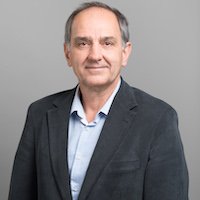
Sorin Voinigescu (Department of Electrical and Computer Engineering): Alliance Quantum grant ($675,000 for 3 years) for Feasibility of Si-based Quantum Information Processing.
Professor Vonigescu’s group aims to build silicon-based quantum computing hardware. Their overarching goal is to introduce a new (hole-spin SiGe qubits), fast (Rabi frequency > 500 MHz), elevated temperature (T > 4 K), scalable quantum computing platform using industry-standard semiconductor CMOS foundry processes, to integrate the classical electronic controller and the qubits on the same chip.
Today's quantum processors, such as those based on superconducting technology, face several issues: they typically operate at extremely low temperatures, require many hours of tweaking before use, and are difficult to scale up to solve practical problems. Silicon-based quantum hardware can overcome those challenges by offering a pathway to large-scale devices. With the Alliance grant, Professor Vonigecscu’s team will manufacture, experimentally characterize, and model semiconducting quantum-dot-based qubits. Moreover, they will explore how to adapt today’s classical semiconductor devices’ manufacturing processes towards monolithic quantum processor needs. This will be achieved through a collaboration with GlobalFoundries's research team in upstate New York.
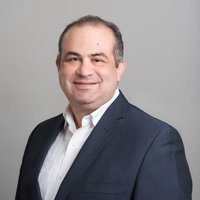
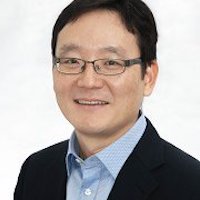
Left: Amr Helmy (Department of Electrical and Computer Engineering): Received Alliance Quantum grant ($1,171,005 for 5 years) for Efficiently Converting Between Optical and Microwave Photons using Nano-photonics.
Right: Young-June Kim (Department of Physics): Received Alliance International Quantum grant ($25,000 for 1 year) for Hidden orders in double-perovskite quantum materials.

